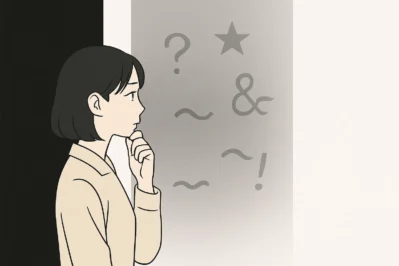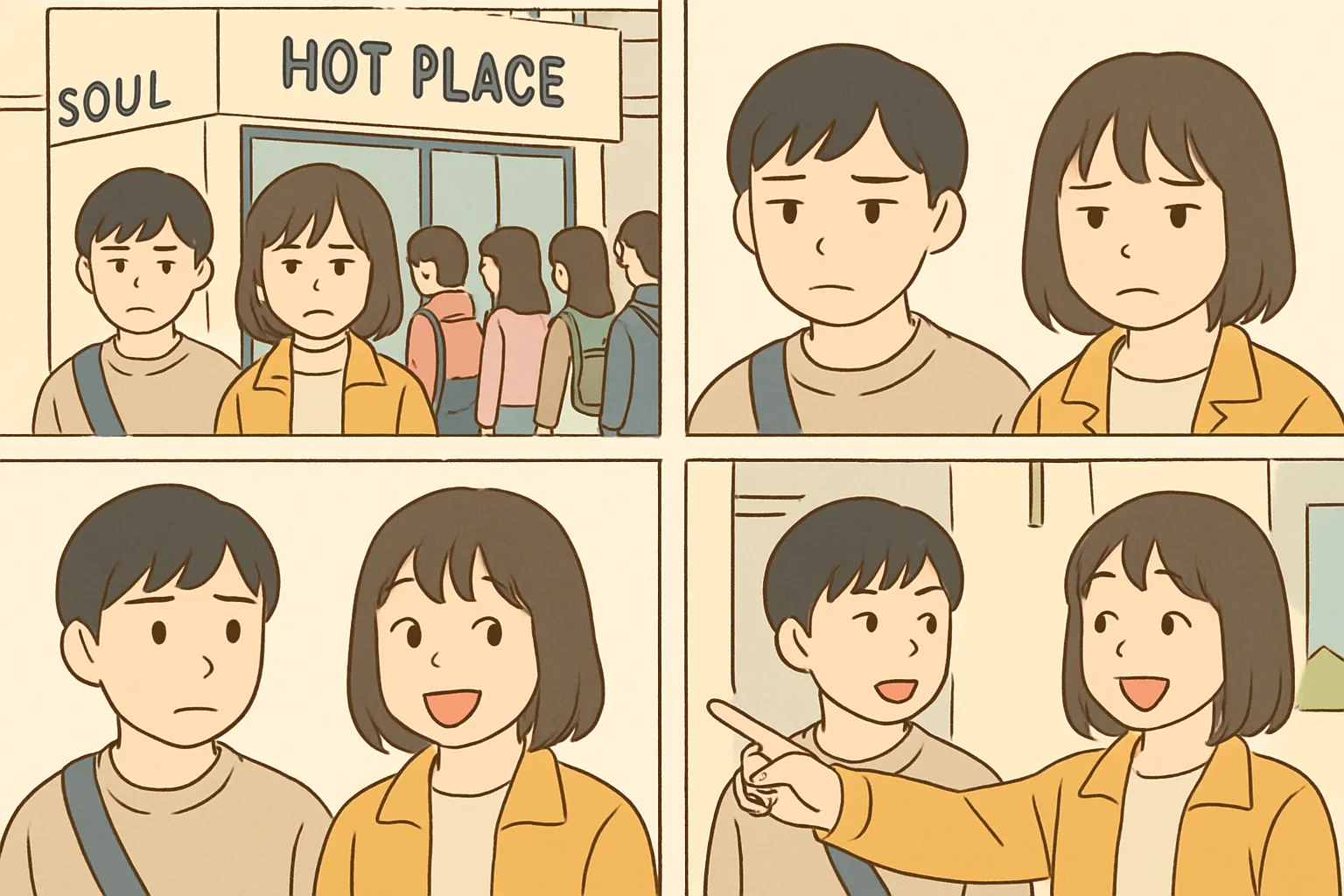Beyond Black & White: Mastering Ambiguity with Korean Fuzzy Logic
Hello everyone! Welcome back to [Maeil Hangeul], the place to upgrade your Korean skills to the next level!
Today, we’re diving into a fascinating and highly advanced topic: Fuzzy Logic (퍼지 논리). This isn’t just a concept from computer science; it’s a powerful tool for understanding the world and, more importantly, for mastering the nuanced way Koreans communicate. Have you ever felt that a simple “yes” or “no” isn’t enough to express your thoughts? Or have you noticed how Koreans often speak in shades of gray? That’s what we’re exploring today. Recently in Korea, there’s been a lot of complex public discourse about social issues and art, where clear-cut opinions are rare. Understanding these nuanced expressions will allow you to participate in deep, intellectual conversations just like a native speaker. Let’s move beyond binary thinking!
Core Expressions: The Art of Nuance
Here are some essential expressions to help you navigate the rich world of Korean ambiguity.
- 한국어 표현: 애매모호하다 (Aemaemohohada)
- 발음 [로마자]: [ae-mae-mo-ho-ha-da]
- 영어 뜻: To be vague, ambiguous, or equivocal.
- 상세 설명: This is the cornerstone of our lesson. It’s used when something is not clearly defined, has multiple possible interpretations, or lacks clarity. It’s a neutral term but can imply slight frustration if you’re seeking a clear answer. It’s more formal and descriptive than just
애매하다. Think of it as describing a state that exists between clear boundaries.
- 한국어 표현: 단정짓기 어렵다 (Danjeongjitgi eoryeopda)
- 발음 [로마자]: [dan-jeong-jit-gi eo-ryeop-da]
- 영어 뜻: It’s difficult to conclude definitively; hard to say for sure.
- 상세 설명: This phrase is perfect for situations where you cannot or do not want to make a firm judgment.
단정짓다means “to conclude” or “to define.” By adding~기 어렵다(it’s difficult to…), you are explicitly stating that a black-and-white conclusion is inappropriate due to insufficient evidence or the complexity of the matter. It’s an intelligent way to show thoughtful consideration.
- 한국어 표현: 일리가 있다 (Illiga itda)
- 발음 [로마자]: [il-li-ga it-da]
- 영어 뜻: To have a point; to make sense; to be reasonable.
- 상세 설명: This expression is key to acknowledging partial truth, a core concept in fuzzy logic. Instead of fully agreeing, you can say
일리가 있다to validate someone’s argument or perspective without committing 100%. It shows you are actively listening and can see the logic in their reasoning, even if you don’t completely share their view. It’s a fantastic tool for debates and discussions.
Example Dialogue
Let’s see how these expressions play out in a real-life conversation about the latest hit drama, “The Seoul Paradox.”
A: 요즘 화제인 드라마 ‘서울 패러독스’ 봤어? 결말에 대한 해석이 분분하던데. 내 생각엔 주인공이 결국 실패한 것 같아.
(Have you seen the trending drama ‘The Seoul Paradox’? The interpretation of the ending is all over the place. In my opinion, the protagonist ultimately failed.)
B: 음… 실패했다고 단정짓기는 어려운 문제 같아. 감독이 의도적으로 결말을 애매모호하게 연출한 거겠지.
(Hmm… I think it’s difficult to conclude definitively that he failed. The director probably made the ending intentionally ambiguous.)
A: 그런가? 난 모든 걸 잃었으니 명백한 실패라고 봤는데.
(You think so? I saw it as a clear failure since he lost everything.)
B: 네 말도 일리가 있어. 물질적으로는 실패했을지 몰라도, 정신적으로는 성숙했잖아. 성공과 실패라는 이분법으로 나눌 수 없는 복잡한 메시지를 던진 거지.
(Your point is reasonable. He may have failed materially, but he matured spiritually. The drama delivered a complex message that can’t be divided into a simple binary of success and failure.)
Cultural Tip & Trend Deep Dive
In Korean culture, the ability to navigate ambiguity is highly valued and is deeply related to the concept of 눈치 (Nunchi). Nunchi is the subtle art of understanding the unspoken context, social cues, and the general atmosphere of a situation. It’s a social “fuzzy logic” where you operate on a spectrum of non-verbal information rather than explicit, binary statements.
For instance, when a Korean superior asks, “이거 오늘까지 가능할까?” (Would this be possible by today?), a direct “아니요” (No) can be perceived as too blunt or even confrontational. A more nuanced, Nunchi-aware response might be, “최대한 해보겠지만, 시간이 좀 빠듯해서 퀄리티를 보장하기는 어렵습니다” (I will do my best, but the deadline is a bit tight, so it’s difficult to guarantee the quality). This response isn’t a simple ‘no’; it exists in a fuzzy state between ‘yes’ and ‘no’, conveying the difficulty without being oppositional. Mastering expressions like 단정짓기 어렵다 and acknowledging partial truths with 일리가 있다 shows a high level of social and linguistic intelligence that goes beyond textbook Korean.
Wrap-up & Practice!
Today, we moved beyond simple answers and learned how to express complex, nuanced thoughts in Korean. By mastering 애매모호하다, 단정짓기 어렵다, and 일리가 있다, you can now engage in more sophisticated and thoughtful conversations.
Now, let’s put it into practice!
- Sentence Completion: Your friend presents a very convincing but one-sided argument about a political issue. You see the merit in their logic but don’t fully agree. How would you respond?
- “네 주장이 완전히 틀린 건 아니야. 확실히 _________.” (Your argument isn’t completely wrong. It certainly _________.)
- Scenario: Think about a movie, book, or piece of art with an open ending. In one sentence, describe why it’s hard to define its meaning using one of the expressions we learned today.
Leave your answers in the comments below! I’d love to see how you use these sophisticated expressions. Keep up the great work






